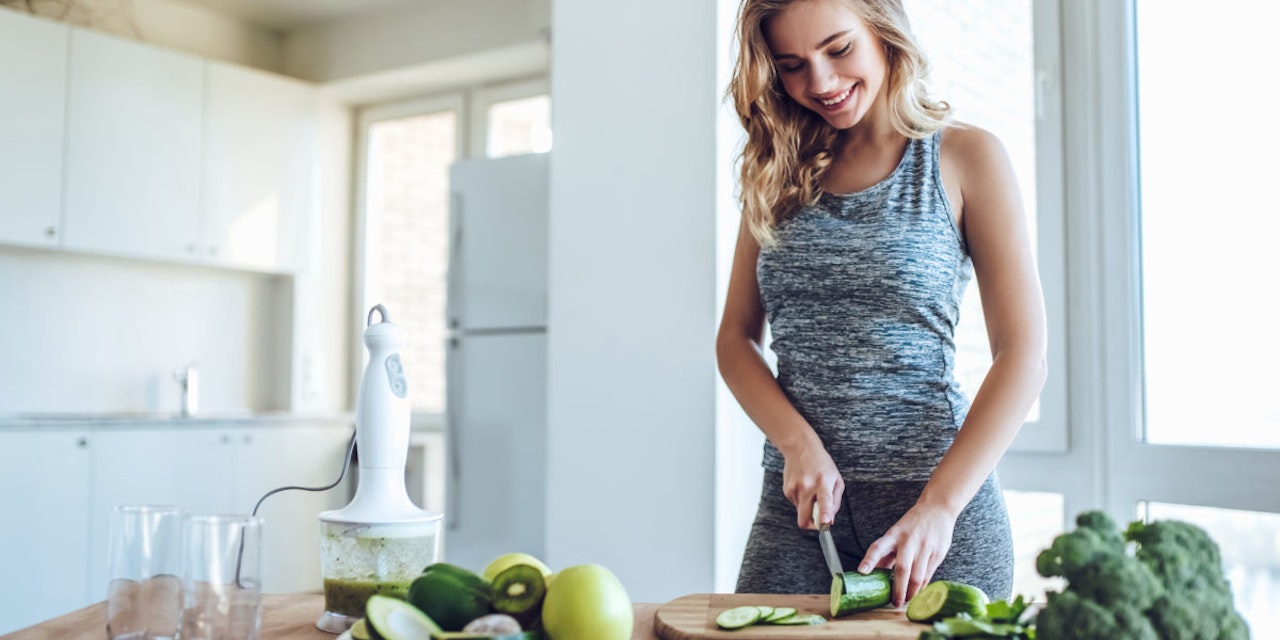6 Cooking Hacks for Healthier Eating
1. Prep Your Veg If you know what your veggie needs are for the week ahead, it’s great to prep them so that they’re all ready. For example, if yo…
- Published: 8/26/2019
- Categories:
- 4 min. read

- Published: 8/26/2019
- Categories:
- 4 min. read
It’s surprisingly easy to make positive changes to your health through the way you cook. A lot of us have, either due to what we learned from our parents, or through lack of time and intention, cultivated a lot of less than optimal cooking habits that aren’t helpful for our health. To help you out, we’ve put together a short list of changes you can make to create better cooking habits and live a healthier, happier, life.
1. Prep Your Veg

If you know what your veggie needs are for the week ahead, it’s great to prep them so that they’re all ready. For example, if you like to snack on carrots and hummus, slice up the carrots ahead of time and store them in small glass tupperware so that you can reach for them when you need them. If you’re going to make potato wedges, you can actually slice up the potatoes, cover them in water, and store them in the fridge so you can cook with ease. Having simple prep work like this done at the beginning of a busy week means that you’ll be less inclined to opt for ready made choices, or eat out, knowing that you’re already halfway there
2. Make the most of your freezer

Cooking ahead and freezing is never a bad idea. The last time my mom visited, she cooked us a cottage pie mix that was all kinds of delightful, and that we dipped into for well over a month. Knowing that part was done and that all we had to do was boil and mash the potatoes meant that we always had a go-to healthy meal, all ready to go. Obviously not all meals and foods freeze well, so do watch out for that (and if in doubt, google!), but this can save you a lot of work. A lot of people have a day each week or month where they batch cook, which, depending on how you are as a person is either great or daunting, but I’d recommend just cooking twice as much as usually need in each meal, and freezing the leftovers.
3. Plan meals

You don’t need to get too serious with this one, unless that’s your thing; but I’d usually aim to cover the three main meals (you can plan snacks if you want to as well). Knowing what you’re wanting to eat for the week means that you only really need to make one or two trips to the grocery store; and it allows you to be intentional about what you’re going to eat each week, so that you only have to make one decision about eating the right way, vs 21.
4.Begin with protein and veg

Plan your meals around the protein and vegetables you want to have, and then figure out what starch you want to add into the mix. It’s easy, if you begin with the starch, to see it as the main part of the meal, and either cook or eat more than you need, whereas if you start with the protein and veg, and then add the starch last, you’re less likely to pack too much into the meal.
5. Embrace steaming

I’m not sure there’s a food you can’t steam. And thank goodness that’s the case. Steaming cooks just as well as frying or boiling, but without the fats that come with frying, and without the water that comes with boiling. And you don’t just have to steam on the stovetop, even though that’s a great option; you can also steam meat and fish in the oven with the help of parchment paper. Bonus: this doesn’t mean you can’t have fats, as you do still want them in your diet, but it means that you can add fat for flavor later where you want it and can really taste it.
6. Eat your ‘trash’

We have a tendency to generate a lot of waste when we prep vegetables and meat, and that doesn’t have to be the case. There are tons of great nutrients we miss out on when we throw out potato skins, bones from our meat, and the tougher stems on veggies like broccoli and cauliflower. All of it has something to offer! Boil your meat bones to get the collagen and other nutrients like calcium, magnesium and phosphorous. Make your mashed potatoes skin-on for a vitamin B boost, and add the harder stems of your veggies to soups or broths, or blend them into soups to maximize the nutritional benefits. Don’t throw it out if you can get more out of it (and most times you can!).
What are some of your favorite cooking hacks for healthier eating?
All of the content and media on Lifesum is created and published for information purposes only. It is not intended to be used as a substitute for medical advice or treatment. Users should always consult with a doctor or other health care professional for medical advice. If you have or think you are at risk of developing an eating disorder, do not use the Lifesum app and seek immediate medical help.